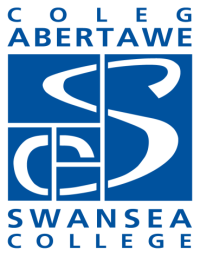National Vocational Qualifications (NVQs) are practical work-based awards in England, Wales, and Northern Ireland that are achieved through assessment and training. The regulatory framework supporting NVQs was withdrawn in 2015 and replaced by the Regulated Qualifications Framework (RQF), although the term "NVQ" may be used in RQF qualifications if they "are based on recognised occupational standards, work-based and/or simulated work-based assessment, and where they confer occupational competence".
Further education in the United Kingdom and Ireland is additional education to that received at secondary school that is distinct from the higher education (HE) offered in universities and other academic institutions. It may be at any level in compulsory secondary education, from entry to higher level qualifications such as awards, certificates, diplomas and other vocational, competency-based qualifications through awarding organisations including City and Guilds, Edexcel (BTEC) and OCR. FE colleges may also offer HE qualifications such as HNC, HND, foundation degree or PGCE. The colleges are also a large service provider for apprenticeships where most of the training takes place at the apprentices' workplace, supplemented with day release into college.
Education in the United Kingdom is a devolved matter with each of the countries of the United Kingdom having separate systems under separate governments. The UK Government is responsible for England, whilst the Scottish Government, the Welsh Government and the Northern Ireland Executive are responsible for Scotland, Wales and Northern Ireland, respectively.

The City and Guilds of London Institute is an educational organisation in the United Kingdom. Founded on 11 November 1878 by the City of London and 16 livery companies to develop a national system of technical education, the institute has been operating under royal charter, granted by Queen Victoria, since 1900. The Prince of Wales, later King Edward VII, was appointed the first president of the institute.
A General National Vocational Qualification, or GNVQ, was a certificate of vocational education in the United Kingdom. The last GNVQs were awarded in 2007.
Higher National Diploma (HND), part of the Higher Nationals suite of qualifications, is an academic higher education qualification in the United Kingdom and various other countries. They were introduced in England and Wales in 1920 alongside the Ordinary National Diploma and the Higher National Certificate. A qualification of the same title is also offered in Argentina, Brunei, Cameroon, India, Malta, Nigeria, Ghana, Kenya, and some other countries.

Coleg Gorseinon College was a further education college situated to the west of Swansea, in the suburb of Upper Loughor in Gorseinon. It was frequently ranked as one of the best sixth-form colleges in Wales and the United Kingdom. Recently the college was rated as 'outstanding' by Her Majesty's Inspectorate for Education and Training. Gorseinon College merged with Swansea College on 20 August 2010 to create a single sixth form and further education college for the Swansea area called Gower College Swansea.

Wilmington Academy is a mixed secondary school located in Wilmington, Kent in the United Kingdom. It stands next to the site of Wilmington Hall.
The BTECLevel 3 diploma is a Further Education qualification and vocational qualification taken in England, Wales and Northern Ireland. The qualification is organised and awarded by Pearson within the BTEC brand and it is equivalent to A-Levels. It is equivalent to the GCE A Levels, more specifically to three A2 awards and the AVCE.

Selby College is a tertiary college, offering A Level courses through its Sixth Form Academy, work-related vocational courses, apprenticeships, business training and adult education courses. It is located in Selby, North Yorkshire, England. The College is a provider of A levels and vocational education for sixteen to eighteen year olds. Selby provides apprenticeships, higher education including foundation degrees, honours degrees and HND/HNC level qualifications as well as workforce training.

Wiltshire College & University Centre is a tertiary college of education founded in 2002 by the merger of Chippenham Technical College, Lackham College and Trowbridge College. Consolidation was completed with the merger of Salisbury College, which commenced in January 2008. In 2020-21 the institution offered over 1,000 courses and had approximately 3,300 full-time and 6,000 part-time students, with over 800 enrolled on degree-level courses.
In the UK education sector, there are a wide range of qualification types offered by the United Kingdom awarding bodies. Qualifications range in size and type, can be academic, vocational or skills-related, and are grouped together into different levels of difficulty. In England, Wales and Northern Ireland, qualifications are divided into Higher Education qualifications, which are on the Framework for Higher Education Qualifications (FHEQ) and are awarded by bodies with degree awarding powers, and Regulated qualifications, which are on the Regulated Qualifications Framework (RQF) and are accredited by Ofqual in England, the Council for the Curriculum, Examinations and Assessment in Northern Ireland and Qualifications Wales in Wales. In Scotland, qualifications are divided into Higher Education qualifications, Scottish Qualifications Authority qualifications and Scottish Vocational Qualifications/Modern Apprenticeships, which are on the Scottish Credit and Qualifications Framework (SCQF). Scottish Higher Education Qualifications are on both the SCQF and the FHEQ.
The Business and Technology Education Council (BTEC) is a provider of secondary school leaving qualifications and further education qualifications in England, Wales and Northern Ireland. While the T in BTEC stood for Technical, according to the DfE (2016) it now stands for Technology. BTECs originated in 1984 and were awarded by Edexcel from 1996. Their origins lie in the Business Education Council, formed in 1974 to "rationalise and improve the relevance of sub-degree vocational education". They are the responsibility of the Minister of State for Skills, Apprenticeships and Higher Education in the Department for Education.
Yeovil College is a tertiary college for further education and higher education based in Yeovil, Somerset. It maintains a main campus in the town and, at a second site, a Construction Skills Centre. In conjunction with the universities of Bournemouth, the West of England (UWE) and Gloucestershire, the college provides Higher Education, degree-level and professional courses at a third site known as the University Centre Yeovil (UCY). In Shaftesbury, the college runs the North Dorset Skills Centre.

Gower College Swansea is a further education college in Swansea, Wales. It was formed in 2010 by the merger of Gorseinon College and Swansea College. Mark Jones, previously Vice Principal of Swansea College and then principal of Bridgend College, became principal in July 2013
Walsall College is a further education college in Walsall, West Midlands, England.
Post-secondary qualifications are qualifications typically studied for after successful completion of secondary school. In Mauritius, this is usually after successful completion of the Higher School Certificate or its equivalent, although select qualifications may permit early school leaving or require additional study. A variety of different post-secondary qualifications are offered in Mauritius.
Ashford College is a further education college in Ashford, Kent founded in August 2014. It has been run by EKC Group since April 2020, when it was acquired from the West Kent and Ashford College corporation. Susan Bonett became Principal of the College in 2021, replacing Victoria Copp-Crawley. Its campus is situated on Elwick Road with work to expand the facilities beginning in 2022 after receiving substantial government funds.
Post-secondary qualifications are qualifications typically studied for after successful completion of secondary school. In Sri Lanka, this is usually after successful completion of the General Certificate of Education. A variety of different post-secondary qualifications are offered in Sri Lanka.
Apprenticeships have a long tradition in the United Kingdom, dating back to around the 12th century. They flourished in the 14th century and were expanded during the industrial revolution. In modern times, apprenticeships were formalised in 1964 by act of parliament and they continue to be in widespread use to this day.






